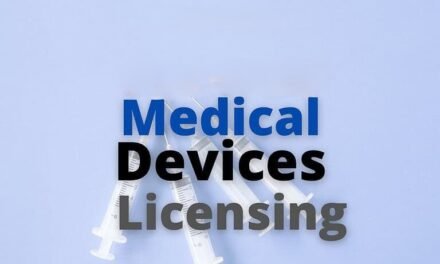
Healthcare Digitization in India: The Role of Medical Devices

Healthcare digitization is reshaping the way healthcare services are delivered in India, addressing challenges such as accessibility, affordability, and quality. Medical devices are at the heart of this transformation, bridging the gap between traditional healthcare systems and the digital revolution. With advancements in technology and the growing adoption of digital health tools, medical devices are playing a critical role in enabling a more connected, efficient, and patient-centric healthcare ecosystem.
1. Enhancing Diagnostics with Smart Devices:
Medical devices integrated with digital platforms are revolutionizing diagnostics. Portable devices such as handheld ultrasound machines, digital stethoscopes, and wearable ECG monitors provide real-time data and insights. These devices enable early detection of diseases, particularly in remote and underserved areas, reducing the burden on tertiary care facilities.
2. Remote Monitoring and Telehealth:
Telemedicine platforms combined with medical devices like blood pressure monitors, glucometers, and pulse oximeters allow patients to monitor their health from home. These devices, when connected to mobile apps or cloud platforms, enable healthcare providers to remotely track patient vitals, offer consultations, and adjust treatments as needed, especially in rural and semi-urban regions.
3. Integration of AI and Machine Learning:
Artificial intelligence (AI) and machine learning (ML) are being integrated into medical devices to provide predictive analytics, automate diagnostics, and personalize treatment plans. For example:
- AI-powered imaging devices assist radiologists in detecting abnormalities.
- Smart insulin pumps adjust dosages based on real-time glucose readings.
These innovations improve accuracy and efficiency in healthcare delivery.
4. Revolutionizing Hospital Management Systems:
Digital medical devices are transforming hospital workflows by automating data collection and management. Devices like infusion pumps, smart beds, and connected ventilators transmit data directly to electronic health records (EHRs), reducing manual errors and enabling seamless patient monitoring.
5. Role in Chronic Disease Management:
Chronic diseases such as diabetes, hypertension, and cardiovascular conditions require continuous monitoring. Medical devices like continuous glucose monitors (CGMs), smart inhalers, and cardiac implants with telemetry capabilities are empowering patients to manage their conditions better. The data generated by these devices is shared with healthcare providers, ensuring timely interventions.
6. Improving Accessibility in Rural Areas:
In a country where a significant portion of the population resides in rural areas, digitized medical devices are crucial for bridging healthcare disparities. Devices such as mobile diagnostic labs, telemedicine kits, and solar-powered healthcare equipment bring affordable, quality care to remote regions, supporting government initiatives like Ayushman Bharat.
7. Data-Driven Healthcare Insights:
The digitization of medical devices generates vast amounts of health data, which can be analyzed to gain valuable insights. These insights are being used for:
- Disease surveillance and early warning systems.
- Predictive modeling for patient outcomes.
- Personalized healthcare planning.
This data-driven approach is helping policymakers design targeted health programs and allocate resources more effectively.
8. Innovations in Wearable Technology:
Wearable medical devices like fitness trackers, smartwatches with health monitoring features, and biosensors are gaining popularity in India. These devices empower individuals to take charge of their health and provide critical data for preventive healthcare.
9. Boosting Public Health Programs:
Digital medical devices are playing a significant role in large-scale public health initiatives. For example:
- Vaccine monitoring devices ensure cold chain integrity during immunization drives.
- Mobile X-ray and diagnostic units are used in TB eradication programs.
- Smart diagnostic kits enable mass screening for diseases like diabetes and hypertension.
10. Challenges and Opportunities:
While healthcare digitization and the role of medical devices have made significant progress, challenges remain:
- Affordability: High costs of advanced devices limit accessibility for the lower-income population.
- Infrastructure: Reliable internet and power supply are critical for connected devices, which remain a challenge in rural areas.
- Data Security: Ensuring patient data privacy and security is paramount as healthcare becomes increasingly digitized.
Opportunities lie in fostering innovation through government support, public-private partnerships, and skill development programs to train healthcare workers in using and maintaining digital devices.
The Road Ahead:
The role of medical devices in healthcare digitization is pivotal to achieving the vision of “Digital India.” With continuous advancements in technology, decreasing costs, and increasing awareness, medical devices are set to transform India’s healthcare system into a more equitable, efficient, and patient-focused ecosystem. By integrating technology with human expertise, healthcare digitization powered by medical devices will pave the way for healthier communities and a robust healthcare infrastructure.




























